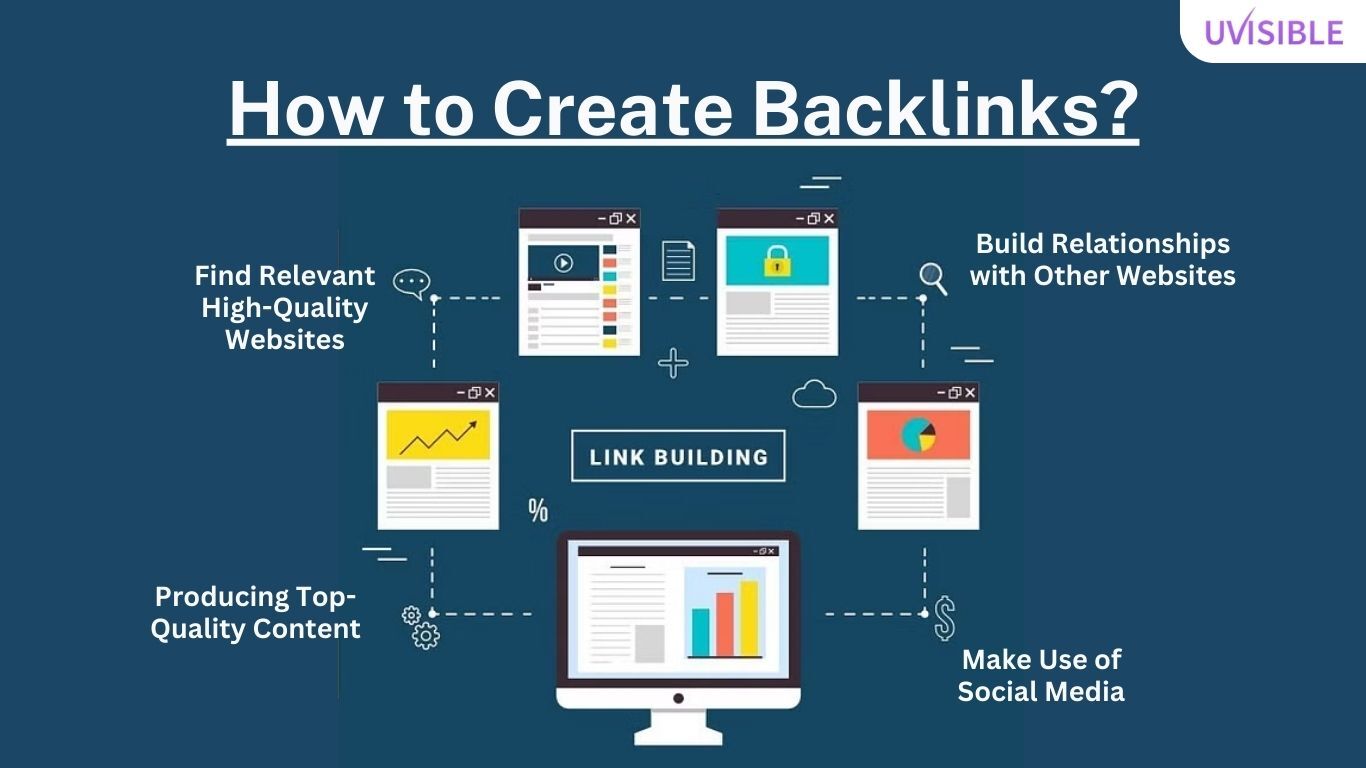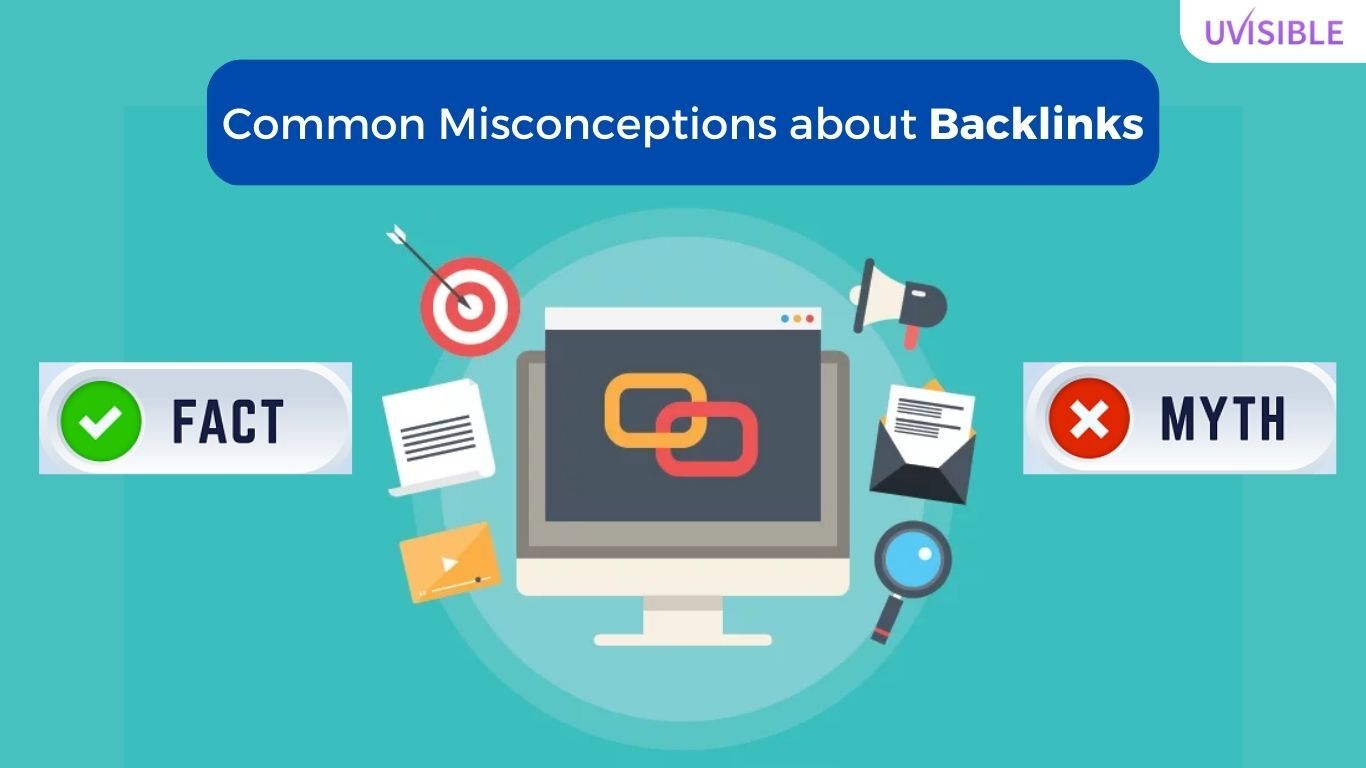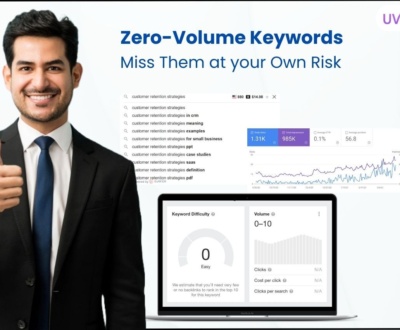Have you ever wondered why certain websites rank higher than others on search engine results pages?
Backlinks, a critical SEO component, hold the answer.
Let’s quickly know what are backlinks.
Simply put, backlinking, also known as inbound or incoming links, are links from other websites that link or connect to your website.
But, why are backlinks so important for the success of your website’s SEO?
In the offline world, imagine that you are appearing for a job interview and you already have a recommendation, the chances of you getting that job would increase.
In the same way, if Website A links to your website, the chances of your website ranking high in Google would increase.
The reason for the importance of backlinks is that Google and other search engines have an algorithm in which backlinks are an important quality factor.
It is known that complex algorithms are used by search engines to analyze websites and establish their relevance and authority on a certain topic.
They are essential in this process because they tell search engines that other websites think your material or content is worthwhile and trustworthy.
Backlinks, along with high-quality content and user experience, have been proven in studies to be some of the most important ranking criteria for search engines.
Without a solid backlinking profile, your website may struggle to rank high in search engine results pages, affecting organic traffic and overall online exposure.
So, what can you do to raise your search engine rankings by improving your website backlink profile?
In this post, we’ll first look at what is backlinks in SEO, followed by different types of backlinks in SEO, we will also offer advice on how to develop quality backlinks and understand what is link building and its value in SEO.
This post will further assist you with essential insights and effective tactics for enhancing your website backlinks profile and attaining SEO success, whether you’re a novice or an experienced SEO specialist.
What are Backlinks and Why are they Important for SEO?

As mentioned above, a backlink is a link from one website to another. In other words, it’s when another website links to a page on your website.
Backlinks are an essential factor in determining a website’s search engine ranking, and the more high-quality backlinks a website has, the better its chances of ranking higher in search engine results pages (SERPs).
Moreover, search engines like Google view backlinks as “votes of confidence” for your website. When another website links to your site, it signals to search engines that your content is valuable and relevant.
However, not all backlinks are created equal. Search engines also consider the quality and relevance of the linking website, as well as the anchor text (the clickable text that appears in a hyperlink).
CHECK OUT: Make your Site SEO Friendly
Why Backlinking is Important for SEO?
After understanding, what is a backlink in SEO and also that it’s one of the top three top ranking factors in Google’s algorithm, along with quality content and user experience.
But backlinks don’t just improve your search engine rankings.
They also drive referral traffic to your website.
When a user clicks on a backlink and lands on your website, it can lead to increased brand exposure, higher engagement, and potentially even sales.
If you want to rank #1 on Google, you’ll need a strong backlink profile. Websites that rank at the top have almost 4x more backlinks than the other sites in the top 10 search results.
To build a strong backlink profile, we might help you as a goal-oriented SEO Outsourcing Company, for more information Contact us today!
Types of SEO Backlinks

There are two types of backlinks in SEO: dofollow and nofollow links.
A website’s percentage of dofollow versus nofollow links will vary. For a healthy backlink profile, Google prefers a solid combination of both.
Here’s an explanation of each types of backlinks in SEO:
1. What are Do follow Backlinks?
This is the most prevalent and useful type of backlinks in SEO.
They are the links that pass authority and “link juice” to your website when compared to no-follow links.
When you add a do-follow link to your website, you are effectively endorsing the material on the other end of that connection.
By informing Google that the linked information is valuable and should be acknowledged, you are helping to boost the target website’s search engine rankings.
For example, if you have an eCommerce website, having dofollow backlinks becomes very essential especially, if you want to improve your search engine results and attract more organic visitors in this rigorously competitive online world.
To develop backlinks from credible and relevant websites, you must hire a performance-driven eCommerce SEO Agency as they know how to recognize lucrative link chances and generate captivating content to obtain those important dofollow backlinks.
2. What are No-follow Backlinks?
In the vast realm of SEO, not all backlinks are created equal.
No-follow backlinks, while more common, bear less SEO weight than their do-follow counterparts.
These links serve the purpose of instructing search engines to refrain from following a particular link.
When implementing a no-follow tag, you signal to Google that the link should not influence the destination website.
A. Benefits and Dynamics of No-follow Links
While no-follow links may carry lower SEO value, they play a significant role in certain scenarios.
Adding a no-follow attribute, especially when linking to a website without endorsing its content, allows for a more nuanced and controlled approach to online connections.
Even though no-follow links lack the direct SEO impact, they can still be endorsements of content.
Consider the example of receiving a no-follow backlink from a reputable source like Wikipedia.
Although the link doesn’t pass traditional link juice, it serves as a strong endorsement, enhancing your website’s credibility.
No-follow links from authoritative websites such as Wikipedia, Inc., or Search Engine Land bring valuable traffic and exposure.
B. Strategic Considerations
It’s crucial to recognize that not all backlinks contribute equally to SEO efforts. Nofollow links, distinguished by attributes like “rel=nofollow,” “rel=sponsored,” or “rel=ugc,” indicate the linking site’s stance on the endorsement.
Despite their diminished SEO impact, these links are still beneficial for online presence and reputation.
Caution should be exercised in the acquisition of nofollow and low-quality backlinks.
While they may naturally accumulate over time, actively pursuing them for SEO gains is often counterproductive.
Moreover, building backlinks that violate Google’s policies, commonly referred to as toxic backlinks, can lead to severe consequences such as a Google penalty.
C. The Holistic Approach to Backlinking
In essence, every link contributes to your online presence and credibility, regardless of its type.
A well-rounded backlink strategy involves a judicious mix of do-follow and no-follow links, emphasizing quality over quantity.
For comprehensive SEO strategies and mindful backlinking, consider leveraging the expertise of an outsource backlink building service. In the pursuit of enhancing your franchise’s SEO, partnering with a Franchise SEO Company can maximize the potential of every opportunity.
Remember, understanding the nuances of backlink building, outsourcing backlinks, and recognizing the importance of both do-follow and no-follow links is pivotal in navigating the intricacies of SEO effectively.
How to Create Backlinks in SEO? Step-by-Step Guide

Creating backlinks can be a time-consuming and challenging process, but it’s essential for building a strong backlink profile.
Here’s a detailed guide on how to create backlinks step-by-step to help you get started:
Step 1: Identify High-quality Websites in your Industry
Use professional SEO software tools like Ahrefs or SEMrush to identify websites relevant to your niche and with high domain authority.
Step 2: Producing Top-quality Content
Ensure your content is valuable and informative before contacting other websites.
To identify the quality of your content you may need to run a detailed analysis for that you may rely on an SEO agency’s effective SEO Audit Service for better results.
This increases the likelihood that other websites will wish to link to your material.
ALSO READ: How to Prepare SEO Audit Report
Step 3: Craft an Effective Outreach Email
When reaching out to websites for a backlink, you’ll need to craft an email that grabs their attention and explains why your content is valuable.
Step 4: Build Relationships with Other Websites
The fourth way in our how to create backlinks in SEO step-by-step guide is to not just focus on getting backlinks but also on building relationships with other websites in your industry as it will lead to additional opportunities for collaboration and promotion.
Step 5: Make Use of Social Media
Social networking may be an excellent source of backlinks and visitors to your website.
To enhance visibility and inspire people to share your material, publish it on social media and communicate with your audience.
Step 6: Monitor your Backlink Profile
Monitor your backlinks regularly to verify they are still current and relevant.
Track your backlinks with professional SEO software tools like- Semrush or Google Search Console to find any broken or low-quality links that need to be eliminated.
Examples of Outsource Backlinks Strategies

Unlock the full potential of your website’s SEO with strategic outsource backlinks strategies.
Explore efficient approaches to backlink building and elevate your online presence by leveraging the power of outsourced SEO backlinks.
Guest Blogging
Guest blogging involves writing a blog post for another website in your industry that includes a link back to your website. By providing high-quality content and offering value to the website’s audience, you can acquire a high-quality backlink and build a relationship with the website.
Broken Link Building
Broken link building involves finding broken links on other websites in your industry and reaching out to the website owner to offer a replacement link to your website. You can acquire high-quality website backlinks and build a relationship with the website owner by providing a solution to the broken link.
Skyscraper Technique:
The Skyscraper technique involves identifying high-performing content in your industry and creating even better content on the same topic. Then, you reach out to websites that have linked to the original content and offer them a link to your new and improved content. By providing higher-quality content, you can acquire high-quality website backlinks and improve your search engine rankings.
Infographics
Infographics are highly shareable and visually appealing, making them an effective way to acquire backlinks. Create an informative and visually appealing infographic related to your industry, and then reach out to websites that may be interested in sharing it with their audience.
Partner Link Building
Request that other firms or suppliers connect to your website if you collaborate with them. This might be done in a variety of ways, such as in a blog post, in the footer of their website, or on their partner page.
Research Link Building
If you have performed a study or published data, there is a strong probability that your findings have been mentioned or referred to on other websites. You can contact these sites and request that they include a link to your website.
Influencer Link Building
Collaboration with influencers or other companies in your sector is an excellent approach to getting visibility and backlinks. If your product or service is compatible with their brand, they may be happy to advertise it and link back to your website.
Resource Page Building
Resource pages are collections of useful materials and connections for a given topic or sector. Finding specialty resource pages and requesting them to include your website as a resource might result in useful backlinks.
Digital PR Link Building
Participating in digital PR can also result in backlinks. This includes developing and disseminating noteworthy information, such as press releases or announcements, as well as contacting relevant journalists or media to cover your story and link back to your website.
A. HARO Link Building Process for Effective Backlink Building
HARO (Help a Reporter Out) Link Building Process:
HARO is a platform connecting journalists and content creators with expert sources. Leveraging this platform can significantly contribute to your backlink building efforts.
Below is a comprehensive guide on how to utilize the HARO backlink outsourcing process:
- Sign Up and Profile Creation:
- Begin by signing up on the HARO platform as a source.
- Create a detailed and engaging profile, emphasizing your expertise and industry relevance.
- Subscription to Relevant Queries:
- HARO sends daily emails featuring queries from journalists seeking expert opinions or insights.
- Subscribe to queries aligned with your industry, ensuring a targeted approach.
- Regularly scan for opportunities related to backlink building or backlink outsourcing opportunities in your field.
- Crafting Compelling Responses:
- Respond promptly to relevant queries with well-thought-out and insightful answers.
- Showcase your expertise in the response and subtly integrate your website or content for journalists to reference.
- Use natural language and avoid overly promotional content.
- Building Relationships with Journalists:
- Establish genuine connections with journalists by providing valuable insights consistently.
- Demonstrate your reliability and expertise, making journalists more likely to link back to your website in the future.
- Monitoring and Capitalizing on Mentions:
- Regularly monitor the media coverage resulting from your HARO responses.
- Engage with journalists and publications that mention your brand, expressing gratitude and reinforcing your expertise.
- Utilize these mentions to build a network and potentially secure more backlink opportunities.
- Analyzing and Adjusting Strategy:
- Use analytics tools to track the performance of acquired backlinks from HARO.
- Analyze the impact on your website’s SEO and adjust your strategy accordingly.
- Refine your approach based on the types of publications and content that generate the most significant results.
Embrace Broken Link Building
Harness the potential of broken link building as a dynamic outsource backlink strategy. Begin by identifying authoritative websites within your niche.
Outsource backlink building by scrutinizing their content for broken links. Next, reach out to the website owners, offering your relevant content as a replacement.
This not only aids in reviving their content but also secures valuable SEO backlinks for your site.
Outsourcing backlink outreach can streamline this process, ensuring a focused and efficient strategy.
Decode Competitors’ Backlinks
Uncover hidden opportunities by outsourcing backlink analysis of your competitors’ profiles. Utilize specialized tools to identify their SEO backlinks.
Outsource backlinks outreach to reach the sources linking to your competitors. Craft personalized pitches highlighting the value your content brings.
This strategic outsource backlink building approach allows you to tap into existing networks, gaining authoritative SEO backlinks that elevate your website’s visibility.
Remember, effective backlink outsourcing can amplify the impact of this competitive analysis, making it a cornerstone of your SEO strategy.
Looking for Outsourcing Backlink Strategies for the Growth of Your Business?
Hire Uvisible! Your performance-driven SEO Outsourcing India Agency
Common Misconceptions about Backlink Building

There are several common misconceptions about backlinks in SEO that can hinder your link-building efforts. Here are some myths debunked:
- Backlinks in Non-newsworthy Press Releases can be Beneficial
One widespread myth regarding backlinks is that incorporating them in press releases may assist with SEO even if the release itself isn’t noteworthy.
Google, on the other hand, has stated that links in press releases should be marked with the “no follow” tag to emphasize that they are not editorial recommendations.
Backlinks in non-newsworthy press releases might have a detrimental influence on your website’s search engine results.
Instead, concentrate on developing newsworthy material that will naturally gain links.
- Even if they are Irrelevant, Directory Links Assist in Ranking
Another common myth is that directory links, even if they are irrelevant to the topic of your website, might help with ranking.
While directories can help you build backlinks, they frequently have low-quality content and little editorial oversight, which puts you at risk of spammy links.
Furthermore, Google’s algorithm has devalued many low-quality directories, which means that links from these directories will have little impact on your search engine rankings.
Instead, concentrate on establishing links from high-quality, relevant sources.
- Even Backlinks from Low-Quality Forums Can Benefit a Website
Some argue that low-quality forum backlinks can still benefit a website’s SEO efforts.
While forums can be used to build backlinks, they frequently have low-quality content and little editorial oversight, resulting in a high risk of spammy links.
Furthermore, Google’s algorithm has devalued many low-quality forum links, implying that links from these sources will negatively impact your search engine rankings.
Instead, use strategies like guest posting, content development, and outreach to build links from high-quality, relevant sites.
- Any Backlink is Good for SEO
This is a prevalent misperception held by many individuals. The fact is that not all backlinks are the same.
The amount of backlinks is less significant than their quality.
Backlinks from high-quality, relevant websites are more valuable than those from low-quality, irrelevant sites.
Having an excessive number of low-quality backlinks might hurt your website’s SEO.
- Paid Backlinks are Effective
While paid backlinks can help your website’s ranking in the short term, they can damage your website’s reputation and SEO in the long run.
Paid backlinks are considered a violation of Google’s standards and may result in a penalty for your website.
To boost your website’s SEO in the long run, it’s critical to focus on creating organic and natural backlinks.
- The More Backlinks, the Better
Another prevalent misconception is that the higher a website ranks in search engine results, the more backlinks it has.
This, however, is not always the case. As previously said, the quality of backlinks is more significant than the quantity.
Having an excessive number of low-quality backlinks might impair your website’s SEO and perhaps result in a penalty owing to its spammy nature.
Google in its algorithm updates and guidelines on backlinks has explicitly mentioned that it considers backlink quality to be more essential than quantity. Backlinks may establish themselves if you focus on creating exceptional content as other sites will naturally mention your site and link to your content.
To boost your website’s search engine position, it’s critical to focus on creating high-quality and relevant backlinks.
Measuring the Success of Your SEO Backlinks Strategy

Finally, it is critical to track the effectiveness of your backlink strategy. Here are some metrics and tools to help you measure the efficacy of your backlinks:
- Domain Authority: Domain Authority is a metric that predicts how well a website will rank in search engine results. Use tools like Moz or Ahrefs to track your Domain Authority over time.
- Referral traffic: Referral traffic comes to your website from external sources, such as backlinks. Use Google Analytics to track your referral traffic.
- Backlink quality: Use tools like Ahrefs or SEMrush to analyze the quality and relevance of your backlinks.
Summing Up!
To summarise, in this blog, we have extensively discussed what are backlinks and why they are important for SEO, types of backlinks in SEO, and so on.
Moreover, when it comes to what is a backlink in SEO, it’s vital to understand that they are an important component of SEO and may have a big influence on your search engine results and traffic.
Even, with the aforementioned section on how to create backlinks step-by-step, you may boost your website’s visibility and create more organic traffic by concentrating on establishing high-quality backlinks and developing a solid profile.
Remember to audit your backlinks and analyze their metrics frequently to guarantee your backlink strategy is effective.
If you are looking for a reputable and reasonably priced digital marketing firm to assist you in improving your website’s SEO with high-quality backlinks?
Look no further than Uvisible!
Our professionals take a proactive approach to backlink development, assisting you in developing a strong and diversified backlink profile that attracts traffic to your site and improves your search engine results.
Contact us today to learn more about our Quality SEO Sevices and to begin constructing your backlink plan NOW!
About us and this blog
We are a digital marketing company with a focus on helping our customers achieve great results across several key areas.
Request a free quote
We offer professional SEO services that help websites increase their organic search score drastically in order to compete for the highest rankings even when it comes to highly competitive keywords.














Pingback: 5 Tips for Writing a Killer SEO Audit Report - Uvisible
Pingback: What is SEO and Why It Matters for Your Business? - Uvisible
Pingback: ChatGPT vs Google Bard: The Ultimate Comparision - Uvisible
Pingback: Anchor Text in SEO: How Important Is It for Your Website's Ranking? - Uvisible
Pingback: Can Toxic Backlinks Hurt My Website Rankings?